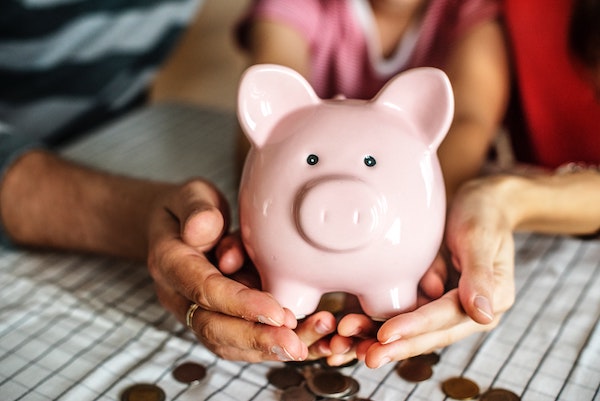It’s the perfect time to be watching what you’re spending and reducing costs where you can, so here are my tips to start cutting costs.
- If you have credit card debt, ring your bank and make sure you’re on the cheapest option possible. Having a low interest rate may be more important right now than accruing frequent flyer points. Your fees are usually lower when you’re not affiliated with a frequent flyer program too.
- If you have a credit card that you don’t use, cancel it. You’ll save the annual membership fees and the less credit you have access to, the better you look to a bank if you’re planning on borrowing any time soon.
- While you’re on the phone to your bank, ask if you can reduce your bank fees or do anything to earn more interest on a savings account.
- Cancel a subscription for 6 months. Do you really need Netflix, Stan, Foxtel and Spotify? I know life is boring at home right now and you need all the stimulation you can get, but do you need them all? Getting rid of just one for 6 months would save you at least $60. Do you have family or friends that you could “share” a subscription with? If one family increases Netflix to cover an additional screen, then maybe you could cancel your account and use theirs.
- Hold onto your phone for an extra 6-12 months after it’s out of contract.
- Skip your daily skinny latte. This could be hard if you need caffeine to kick start your day, but it could be good for your health as well as your wallet, saving over $1500 a year.
- Do your own nails. A mani/pedi is a great little treat but doing your own nails will save you over $500 in a year – and the more you do it, the better you’ll get. Pro tip: Don’t cut your own hair unless that’s your job. That’s just one step too far!
- Save a goldie a day. Whether it’s $1 or $2, you can save up to $730 a year and I bet you won’t miss it.
- Turn off your lights, fans, air conditioning and power points when you’re not using them. This tip is good for your wallet and the environment!
- If you’re still going to work, pack your lunch. It’s pretty ridiculous how much you can spend on lunches in a week. $15 on lunch, 5 days a week, 48 weeks a year costs $3600. Cut that down to one bought lunch a week and you’ll be saving yourself nearly $3000.
- Make a meal plan and grocery shop for your meal plan. No extras required! No additional thought required. This will save you tons and will have you throwing away less and, importantly, going to the supermarket less.
- Use your spare time wisely and clean out all that stuff you don’t need, use or like. Donate it to charity or put it aside to sell it once movement restrictions have lifted. Post it on Facebook marketplace, Gumtree or Ebay. Why keep it if you no longer use it, it doesn’t fit or you don’t like it anymore?
- Host a virtual dinner party at home. It will cost you a fraction of the price of either a real life dinner party or a night out.
- Clean out your wardrobe and see what’s really in there. Maybe something fabulous has been lurking at the back or something that can be easily re-styled. See if you can go the next season without buying new clothes/shoes/bags/jewellery.
- Find fun things to do at home – which you can continue once you’re allowed out. Play board games, card games, set family challenges, have an in-home disco. Get creative and have fun.
- Shop around for petrol. Even if your tank’s not empty and drive past a petrol station with a great price, it’s a good idea to fill up. Sometimes there can be a whopping 40c per litre difference between morning and evening prices, so take the good prices when they’re offered.
- Shop around for booze bargains. If nothing else, this pandemic seems to have increased our drinking. If you noticed that you’re having a drink a little more frequently, make sure you’re buying well.
- Shop around for your insurance and utilities to find the same service at a better price.
- If you’re still working, save all the money that you would be spending. Transfer the money from your everyday account to your savings account NOW.
Now is a great time to become a money master. It will be great practice for when life returns to normal.


